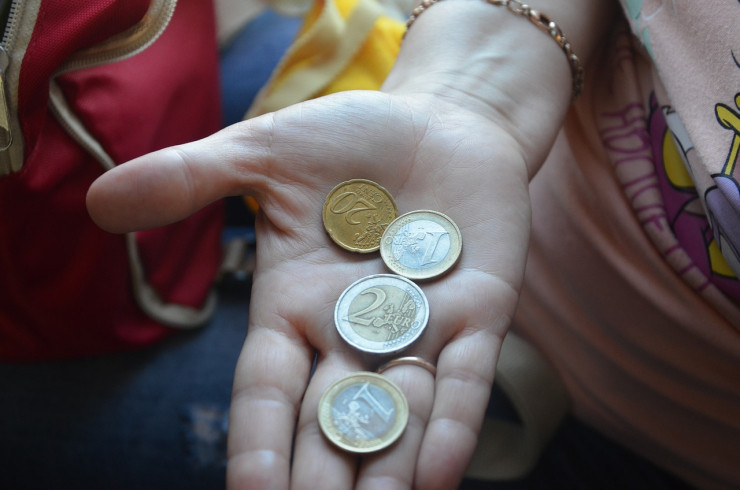Netherlands: Tightening of deposit limits in force

In Germany, the deposit limit for online casinos and digital sports betting providers of 1,000 euros per month is a constant source of debate and a great deal of resentment: too low, too inflexible, too strict and ultimately a good reason to prefer illegal providers - according to critics. In contrast to our neighbors in Holland, however, we have comparatively much freedom for our gambling spending. Even stricter restrictions have been in place there since October 1.
Deposits are undoubtedly one of the biggest risks for problem gamblers. In extreme cases, people not only lose a lot of money, but also risk their livelihood and fall into spirals of debt and social problems.
To counteract such developments, the Netherlands introduced a new law on October 1 that significantly tightens the limits for casino and sports betting investments. The aim of these measures is to protect younger people in particular from the dangers of excessive gambling and at the same time to prevent problematic gambling behavior in general.
The strict regulations were already the subject of intense debate in advance. There were some strong reactions from players and industry representatives. Although the current limits have been slightly relaxed compared to the original proposals, they remain very strict and are likely to continue to cause a stir. In March of this year, we reported on the plans to set a deposit limit of 5.35 euros per day in the Netherlands. Now let's take a look at what is actually being implemented.
The limits that have now been decided differ somewhat from those in the original draft law
The initially planned limits actually provided for significantly stricter or more complicated regulations, particularly for young people.
The original draft envisaged a daily deposit limit of just €5.35 for players under the age of 23, capped at €37.50 per week and €150 per month. For older players over the age of 24, a daily limit of 12.50 euros was envisaged, which would have led to a monthly maximum of 350 euros. These provisions would have forced casino and sports betting users to spread their transactions over the course of a month and its individual days instead of transferring a larger sum at once, as is common practice in other countries.
In the law that finally came into force, this model was changed in favor of monthly upper limits. A net deposit limit has been set for all players:
- 700 euros per month for customers aged 25 and over.
- 300 euros for young adults aged 18 to 25.
This means that the undoubtedly very complex concept of daily limits has been abandoned in favor of a simpler, more player-friendly monthly regulation. The upper limits that now apply are automatically based on the first day of each month.
The measures for player protection education have been expanded. From now on, players must set personal deposit limits when registering - and if they reach the limits, they are automatically advised of offers of help. These increased efforts to prevent gambling addiction also include regular pop-up messages while gambling.
The industry is increasingly concerned about potential damage
The Dutch gaming industry is facing a series of drastic changes that could have a significant impact on the way it operates. In addition to the stricter deposit limits, it is above all the tax increase planned for 2025 and 2026 as well as possible advertising or even slot bans that are causing growing concern.
- Alan Littler, a lawyer specializing in gambling law, emphasized in an interview with the international trade press that the new measures would not only increase costs for operators, but would of course also reduce consumer spending. These double restrictions could affect the economic balance in the industry. It is to be expected that the Dutch Gaming Authority (Kansspelautoriteit) will tighten its controls, which will lead to higher compliance costs and further challenges for licensed operators.
- A central problem that is repeatedly raised is the potential migration of customers to the illegal gambling market. Especially when legal offers appear less attractive due to strict rules, more players could opt for unregulated online casinos or bookies, which often have no deposit limits or tax obligations. Littler also warns of the possible results of the upcoming evaluation of the system by the national Ministry of Justice and Security. This could result in additional (as yet unforeseeable) regulatory changes, which will further increase uncertainty for the industry.
Conclusion
The recent tightening of deposit limits in the Netherlands shows once again how difficult it is to strike a balance between strict player protection and an attractive gambling landscape. Although the rules that have now come into force deviate slightly from the originally planned limits, the restrictions for players remain drastic. The Dutch gambling industry is facing increasing challenges as a result, while rising taxes and other possible restrictions would make the legal offer even less attractive. These measures increase the risk of players migrating to illegal providers.
Similar developments are also emerging in Germany, where strict regulation often leads to criticism. The trend here is that players are increasingly using the black market to gamble more flexibly and without strict regulations. However, the difference lies in the fact that, according to official figures, the Netherlands can already boast very good channeling successes, whereas the situation here is more mixed. For the latter reason, the German Sports Betting Association, among others, has called for a change in regulatory policy.
Image source: https://pixabay.com/photos/euro-hand-coin-1041682/

0 Comments to: Netherlands: Tightening of deposit limits in force
write a commentOur community thrives on your feedback - so let us know what you think!
Would you like to write comments on GambleJoe yourself? Then just create a GambleJoe User Account.